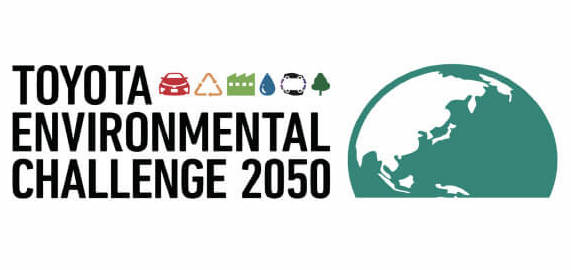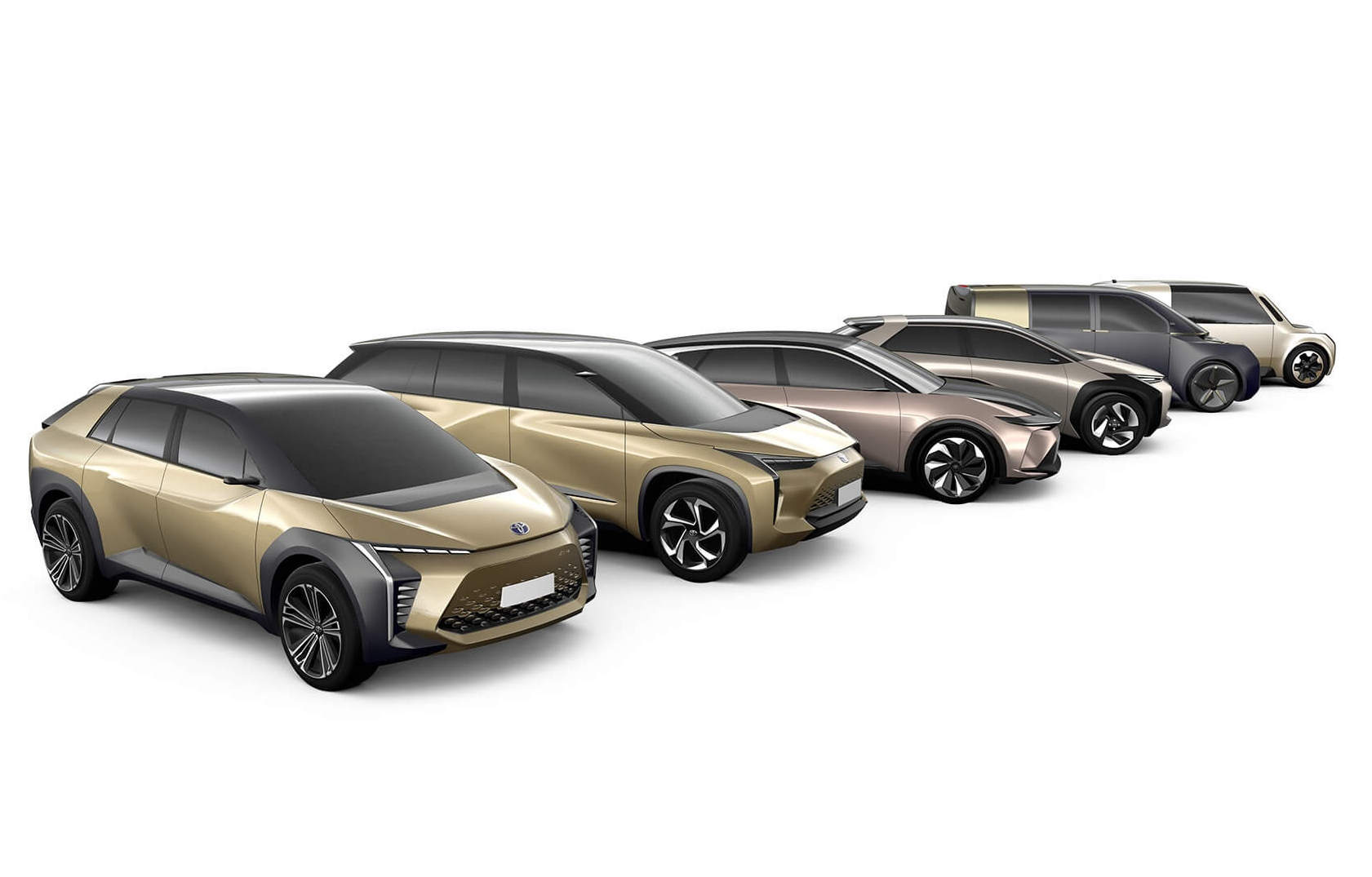INTRODUCTION OF CARBON NEUTRALITY
We need to keep in mind that the goal is Carbon Neutrality(CN), not to change all vehicles to BEVs. Automotive industry is a comprehensive industry that deeply engages in many industries such as energy and materials. CN cannot be achieved without reducing CO2 emissions throughout the entire process of vehicle life cycle: not only driving, but manufacturing, transporting, using, disposal and recycling. It is necessary to expand the paths to carbon neutrality by including all approaches.
TOYOTA'S AIM FOR CARBON NEUTRALITY BY 2050

Toyota's initiatives
Toyota has been tackling with "Environmental Challenge 2050" from 2015 and promoted CO2 reduction activity for whole vehicle life cycle from production, vehicle usage, recycle.

After first global mass production HEV Prius introduction in 1997, selection option for customers. Toyota has promoted to prepare HEV/PHEV/BEV/FCEV as full line up and prepared various vehicle lineup. Toyota thinks that "Environmental vehicles are only meaningful as environmental vehicles if they become widespread and contribute to CO2 reduction". We thought that such environmental technology has meaning only if it become widespread. We have thoughts to contribute to people happiness and health by technology. Toyota is thinking of a society with human centered approach. We want to support a rich society with human centered approach.

Introduction to EV
EVs are ultimately a sustainable means of transportation, but at the moment energy mix and battery technology are still underway, so it will take some time for EVs to become practical. The practical technology that connects the way to EV are HEV, PHEV. That is why Toyota has a full lineup. We are also making every effort to develop batteries for the spread of EVs.

Regarding the introduction of electric vehicles, the usage environment and cruising range required by customers in each country and region are different. Preparation status of charging infrastructure is different. We will provide a power train that customers can feel "easy to use and want to ride" and accept it according to each customer situation. And it is important to reduce CO2 emissions as a result. We will respond to the economic environment, energy policy, industrial policy, and customer needs that differ from country to country. We will provide most suitable electric vehicle, and let customer choose it (practical), and continue to use it (sustainable) and we would like to aim for carbon neutrality in a sustainable way.
We believe that actions to achieve CN should be sustainable and practical. The spread of electric vehicles would not be possible if it requires infrastructure or subsidies. Even if we introduce electric vehicle, if the price is too high, it will not be selected by customer. It must be practical to spread vechicles to contribute to CN.
Hydrogen-Powered Engines Head to the Next Stage: Super Taikyu Series Final Round at Suzuka
Read moreGR86 as the Front-runner on the Road to Production: Super Taikyu Series Final Round at Suzuka
Read moreToyota Announces Progress of Efforts in the Super Taikyu Series
ENEOS Super Taikyu Series 2022 Powered by Hankook Round 2 NAPAC Fuji SUPER TEC 24 Hours Race
Three Differently Fueled Vehicles to Enter the ENEOS Super Taikyu Series 2022 Powered by Hankook
Read moreACTIONS FOR CARBON NEUTRALITY IN AFRICA

How can we introduce in Africa?
Products and services that are "Practical & Sustainable" for Africa are very different from those in Europe. Important thing is to promote CN while protecting safety and security of our customers is the highest priority. Based on this policy, Toyota will introduce practical, and sustainable electric vehicle that meets customer needs in the African region.

Firstly, we plan to actively introduce HEV vehicles to all countries in Africa at an early stage. After that, we will consider introduction of PHEV, BEV, FCEV, in the future while listening to situation and needs of our customers. In addition to new car sales, we will also start HEV used car sales in each country. We would like to provide customers' choices option while responding to various customer requests. We are planning to produce HEV vehicles in South Africa this year. We are also promoting CN at factories and suppliers such as utilizing solar power renewable energy and promoting waste recycling. We will implement these CN initiatives not only at our factories but also at all sales and service outlets.

It is necessary to work in collaboration with various stakeholders to achieve CN in the automobile industry; Energy policy, purchase subsidies, supplier support, battery recycling systems, etc.
Toyota will consult with the governments of each country on how to prepare environment to promote vehicle electrification. We will promote an electrification strategy that contributes to CO2 reduction throughout the life cycle.

